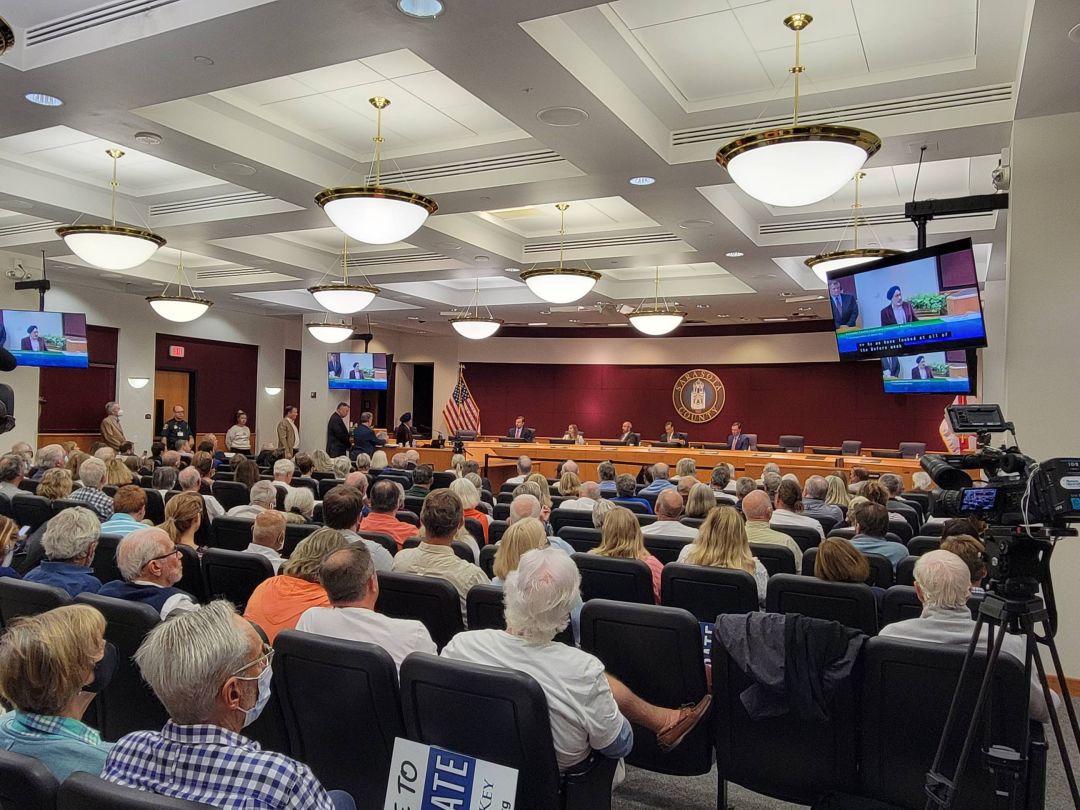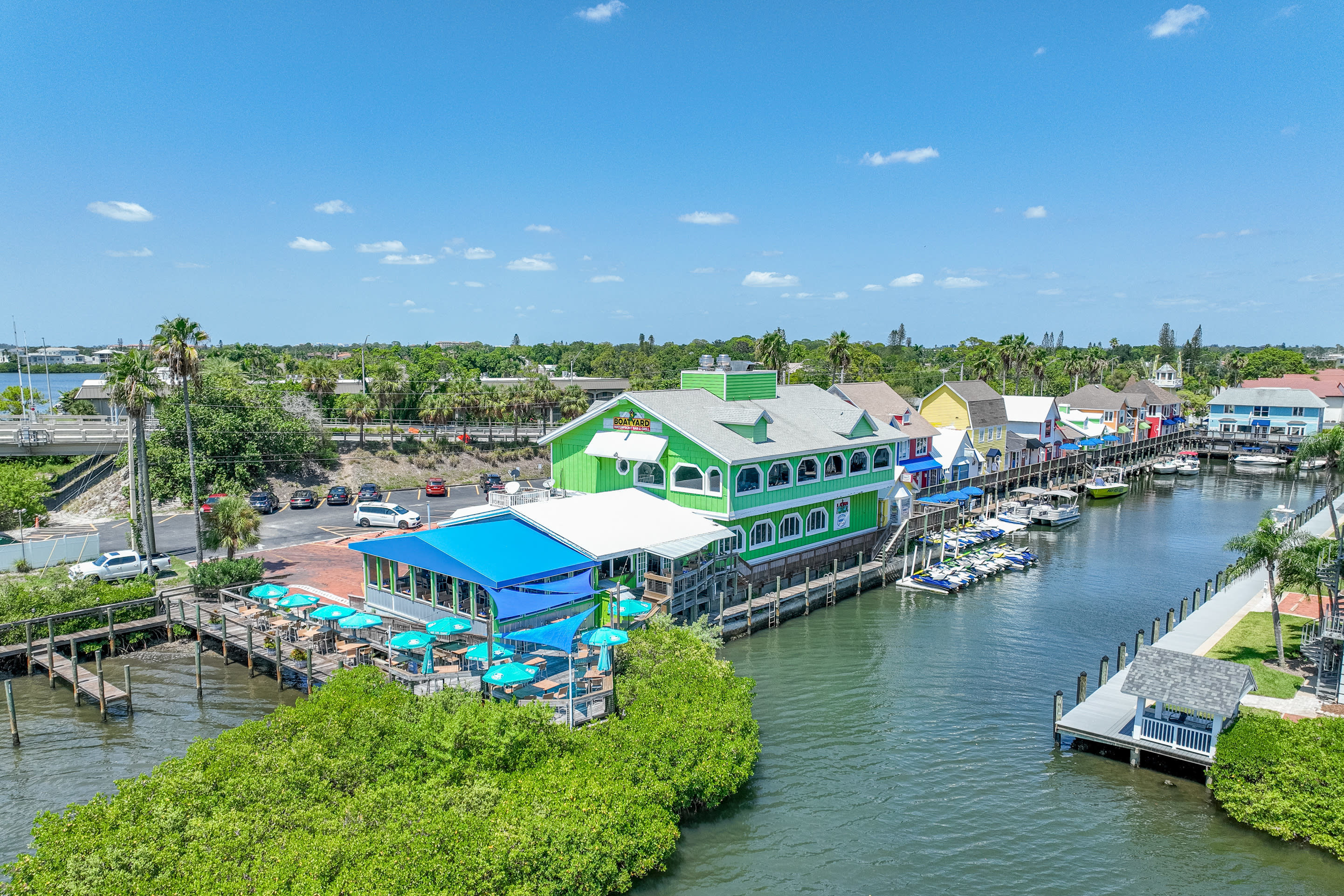State Lawmakers Vote Down Bill to Incorporate Siesta Key

More than 100 speakers attended last night's local delegation meeting to push for a referendum that would allow Siesta Key residents to vote on incorporating the barrier island into the Town of Siesta Key.
Image: Courtesy Photo
Sarasota County's six-person state legislative delegation shot down a proposal that would have allowed Sarasota Key residents to hold a referendum to determine whether to turn the barrier island into a town on Tuesday. The delegation was evenly split on the issue, voting 3-3. State Rep. Fiona McFarland, who sponsored the bill, state Sen. Joe Gruters and state Rep. Michele Rayner voted yes, while state Reps. Will Robinson, Tommy Gregory and James Buchanan voted no. The proposal required a majority vote to move forward to the state Legislature.
The call to incorporate gained traction earlier this year when the Sarasota County Commission approved two hotels on the barrier island that shattered existing height and density restrictions. One project placed a 170-room, eight-story hotel on just under an acre of land—seven times the density and more than twice the height outlined in the comprehensive plan. Two more hotels with similar increases are also slated to go in front of county commissioners for approval.
Siesta Key residents who showed up en masse at the public hearings to oppose the hotel proposals often felt their voices were ignored, and that the law had been broken when the comprehensive plan limitations were set aside to make way for the hotels. Two lawsuits have since been filed by Siesta Key residents. People who live on the island say they're concerned about traffic, public safety, parking and how the new hotels might affect overall quality of life.
Many have banded together and formed organizations to strengthen their response. One of them, Save Siesta Key, is spearheading the effort to incorporate the barrier island into its own town.
Roughly 120 people showed up last night in support of incorporating the island. Just one speaker, Mark Berry, spoke against it.
The hotels were "the last log on the fire," says Tracy Jackson, a Save Siesta Key board member. "We've been fighting to prevent so many things over the years, but we just keep losing. This is taxation without representation."
She pointed to the dredging of Big Pass and the approval of the Siesta Promenade development near the south bridge as other instances in which county officials ignored residents' opposition.
A feasibility report authored by Save Siesta Key highlighted that the proposed municipality meets five of the six conditions laid out by the state of Florida required to form a municipality. The one it doesn't fit is being a distance of two miles away from other municipalities. Proponents said a waiver could be produced to resolve that issue.
According to supporters of the plan, the new community's focus would be planning, zoning and code enforcement. The so-called “government light” town would have five elected council members and five full-time employees, including a town manager, a finance director and a town planner.
To pay for it, the feasibility study proposed a .25 millage property tax. A property value of almost $450,000 with a homestead exemption of $50,000 would cost a Siesta Key homeowner just under $100 annually and yield roughly $3.7 million a year.
But Robinson, Gregory and Buchanan felt those monies wouldn't cut it. Robinson compared the proposed rate with that of Venice, Holmes Beach, Anna Maria Island and Bradenton Beach, which are higher. He also made budget comparisons with Anna Maria and Bradenton Beach, "which are a quarter of the size of Siesta Key, yet have $8 million dollar budgets, and you are all proposing $4 million."
Save Siesta Key representatives argued that the millage would be a starting point and that needs could be reassessed in the future.
"We're saddened by the decision, but we're not defeated," says Jackson. "We're going to take a breath and regroup. This isn't over and we hope to grow our board with the best and the brightest in our community."



